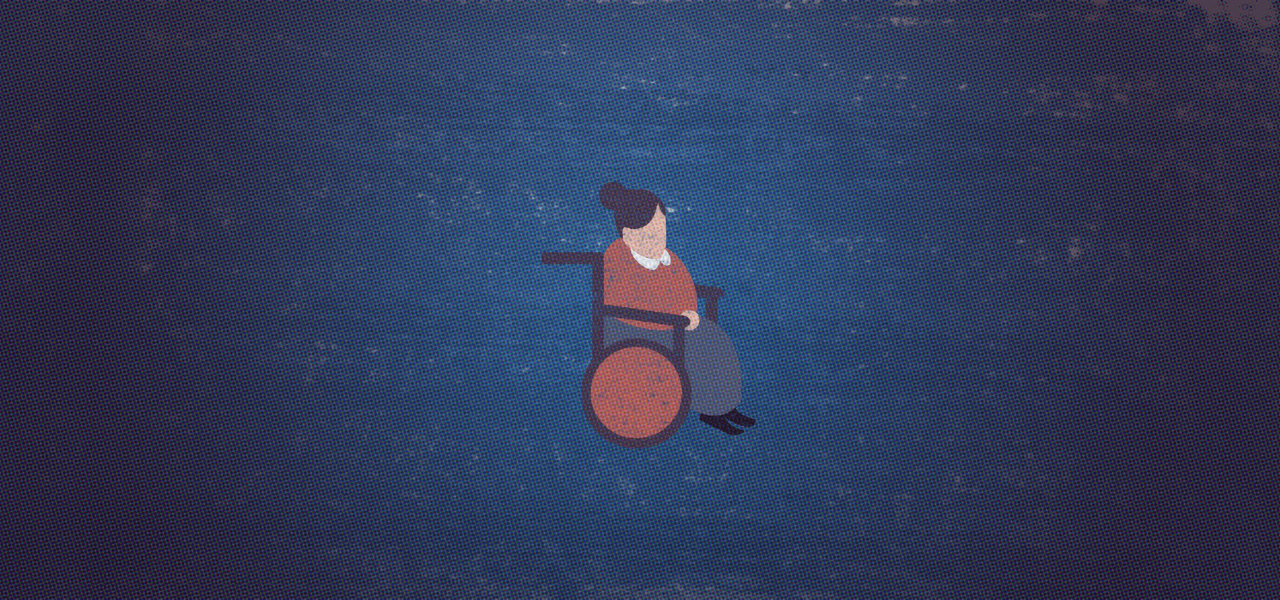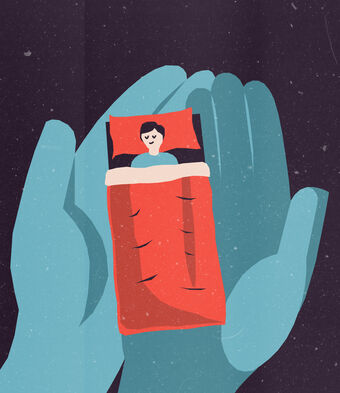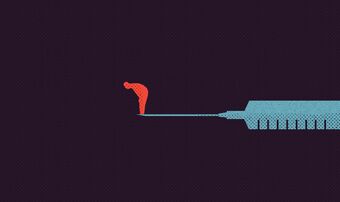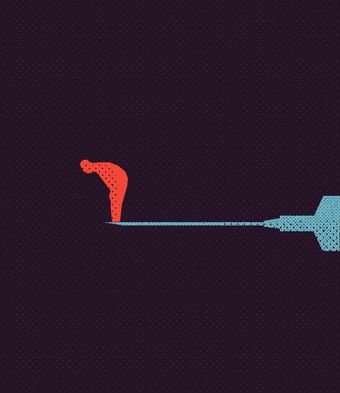In the fast-paced world of TV journalism you don’t often come across a discussion on a contentious topic that’s calm, nuanced, or profound. Interviewers can give short shrift to both sides of an argument and instead encourage confrontation between commentators to create ‘good television’ and clickbait headlines. But every so often there are exceptions to this – a discussion that really is worth watching and reflecting on. This week, I encountered a prime example on Sky News Australia. On Tuesday, veteran presenter Andrew Bolt interviewed a Liberal politician named Julian Leeser on assisted suicide and euthanasia.
There’s a live debate at present in Australia, where two states have passed laws allowing the practice and others are expected to do so soon. Assisted suicide has been legal in the State of Victoria since 2019, will be legal in Tasmania from October 2022, and may be legal in Queensland next year should new legislation pass. Euthanasia – where doctors are empowered to kill patients – was also legal in the Northern Territory between 1996 and 1997 before being overturned by the Federal Parliament.
The discussion between Bolt and Leeser was not loud or confrontational, as you might expect it to be. It didn’t involve two pundits at odds with one another trading blows. Rather, it was a calm, cordial discussion about a topic which can elicit a strong reaction from members of the public. Bolt confessed to changing his mind about assisted suicide and euthanasia. He has been moved out of sympathy for patients in great pain to support a change in the law, and then about-turned after witnessing the peaceful, natural death of his mother. Leeser, resolutely opposed to the practices, presented a clear case against the practices with the calmness and sensitivity.
There is a great deal to be learned from this discussion, and not just from its genial tone. Bolt and Leeser – a journalist and a politician – have had time to digest the competing claims of proponents and opponents of assisted suicide and euthanasia for years. In the UK, where legislation to legalise assisted suicide in England has been lodged and legislation to do the same in Scotland is expected soon, we would do well to listen to them. Several of the areas covered in the Sky News discussion have not been raised in the UK debate thus far and they ought to be. Here is a summary of the discussion with some observations.
Andrew Bolt
The closure that comes with a ‘natural death’
Bolt was upfront about his stance on assisted suicide laws, confessing that the difficult deaths of two family members had caused him to support and then oppose a change in the law. However, he has settled on a position against assisted suicide after reflecting on the importance of a ‘natural death’.
If we, my family my mum, hadn’t bungled my mum’s euthanasia – no doctor then would help us – then my last memory of her would not be of her later in hospital saying ‘I love you’ before drifting off very quietly and naturally.
The experience of family members in the wake of a loved one’s ‘assisted death’ is rarely touched upon by proponents of assisted suicide in the UK. Suicide elicits deep anguish on the part of family members and friends, and sometimes guilt – ‘I could have done more. I should have.’ In the case of medically assisted dying laws, loved ones may think: ‘Did we push her to do this?’ ‘Did she really want to die?’ A natural death avoids such feelings and allows grieving family members to come to terms with a death.
What about forgotten people?
The presenter also raised another, rarely discussed problem with assisted suicide and euthanasia laws – the impact they have on lonely and forgotten people:
Have you been to a nursing home lately? Have you seen how many people don't get one single visitor? It breaks your heart. Have you seen, as I have, neighbours die and the only time you see their relatives drop by is when they knock on your door asking, if you might know where she kept her valuables?
Assisted suicide and euthanasia puts society’s forgotten people at risk. We have all, at some stage, been to a nursing home. We have seen the desperately sad experience of those left to live out their days alone. When loneliness and depression hits, with assisted dying on the statute books, how many of these individuals will feel pressured to end it all? As a society, is this really how we ought to treat out elderly people?
'People will die in the dark'
People will die in the dark a lot more than you think, or care to know. That's the problem, I think or one of them…Some will say, ‘I want to kill myself. I can't bear this’, when what they might really be saying is, ‘I'm scared. Tell me that I matter. Tell me that you love me. Be with me in my fear.’
The suffering and hopelessness experienced by terminally ill people can manifest in a desire to end it all but is allowing them to end their lives the right response? Could such an expression in desperate times instead indicate a cry for help – for reassurance, love and support? People who are not terminally ill also experience depression, hopelessness and even suicidality. They rightly receive compassion and support. Why should society’s treatment of the terminally ill be different?
Julian Leeser
Staggering number of ‘assisted deaths’
Leeser begins his comments by outlining how many patients accessed assisted suicide legislation in the State of Victoria:
In the first year, the Victorian government said there would only be 12 people who might die by euthanasia. Instead, there were 272 applications and 124 people died. The youngest was 36. I don't think any of us think about these laws and think that they apply to a 36-year-old. In the last six months, 94 people died by euthanasia. So in the first 12 months a hundred and twenty four and almost that same number in the last six months alone. These ese are shocking numbers and I don't think that they're getting enough attention.
The number of people who have accessed assisted suicide in the State of Victoria was more than ten times as many as expected in the first year, and close to a hundred in the last six months. This should make us sit up and take notice. Proponents of assisted suicide argue that it will be a very limited law, for a small number of individuals in desperately hard circumstances. The numbers in Victoria (a state) in the first year and a half alone imply that the practice fast becomes normalised.
Andrew Bolt
Euthanasia law had deeply disturbing cases
Bolt goes on to cite harrowing cases in the Northern Territory, which previously allowed euthanasia:
Seven, people applied to be killed but a study in the Lancet Journal co-authored by Philip Nitschke found that none actually had severe pain. Only two of them were married. Many were clearly very lonely.
The number of patients who did not have severe pain euthanised under legislation that only operated for one year in Australia is chilling. How can supporters of assisted suicide guarantee that the law will be accessed only by those who are in unbearable pain?
Julian Leeser
Change in the law turns Western values ‘on their head’
Lesser reflects on the broader ramifications of a move towards assisted suicide or euthanasia in a Western society, founded on Judaeo-Christian values:
Look, I think it was the wrong thing to do. I don't think euthanasia laws have a place on any of our statute books in any parliament in the country and that is fundamentally because one of the things Western liberal societies are based on is the Judaeo-Christian ethic, which says that each individual life matters that we all have human dignity and that we shouldn't be taking people's lives. And we see that in so many of the policies that we have. Whether it's the efforts of governments of all stripes at all levels to keep people safe from COVID. Whether it is the money that we put into medical research, whether it's the ten billion dollars or more we spend on suicide prevention…the fundamental value of our society, and what makes it different to a communist society or a totalitarian society, is that we value individual lives. Euthanasia laws just turn [those values] on their head.
It’s a powerful point. And historically speaking, however much proponents of assisted suicide and euthanasia balk at the suggestion, these law changes are the moniker of societies that have abandoned a view of life as sacred, and worthy of protecting. Our own society is built on compassion and respect for human life. This is necessarily undermined by a change in the law which allows life to be snuffed out by individuals, or by the state on behalf of individuals.
No adequate safeguards
Leeser goes on to cite the example of a women at the centre of the campaign for legal euthanasia in the Northern Territory:
She was on all the advertisements saying ‘please let me die’ but she actually lived and got better and became an opponent of these laws. If you take someone's life, they have no chance to recover. They have no chance to get better. There are no adequate safeguards in my view.
Leeser’s point here is vitally important – it is very hard to provide an accurate prognosis. People given six months to live by a doctor often live for months and even years afterwards. But if their lives are cut short by assisted suicide or euthanasia, there is no going back. Given the obvious impossibility of providing safeguards, how can societies consider venturing down this path?
A positive vision
The politician’s final remark is a positive one:
I sympathize with people who've had relatives who are in pain at the end of life [but] one of the things that I don't think we do well enough in this country is palliative care. The increase in palliative, care hospitalizations grows 5% a year, the increase in children looking for palliative care goes up 10% a year. The government put about 60 million dollars extra into the federal budget but I think we need more. We are one of the wealthiest countries on Earth. We have one of the best health systems in the world. No one in this country should die in pain and we should do all we can to ensure that people's last days are not painful.
For those of us concerned by the dangers of assisted suicide and equally concerned by the plight of patients facing suffering at the end of life, there is an answer. Like Australia, the UK is an incredibly wealthy nation that could do much more to improve palliative care services.
By raising investment in palliative care, and providing patients in every part of the UK with access to the relief, support and attention they need, we can ensure that people truly can have ‘dignity in dying’.
Jamie Gillies is Senior Press Officer for CARE.









